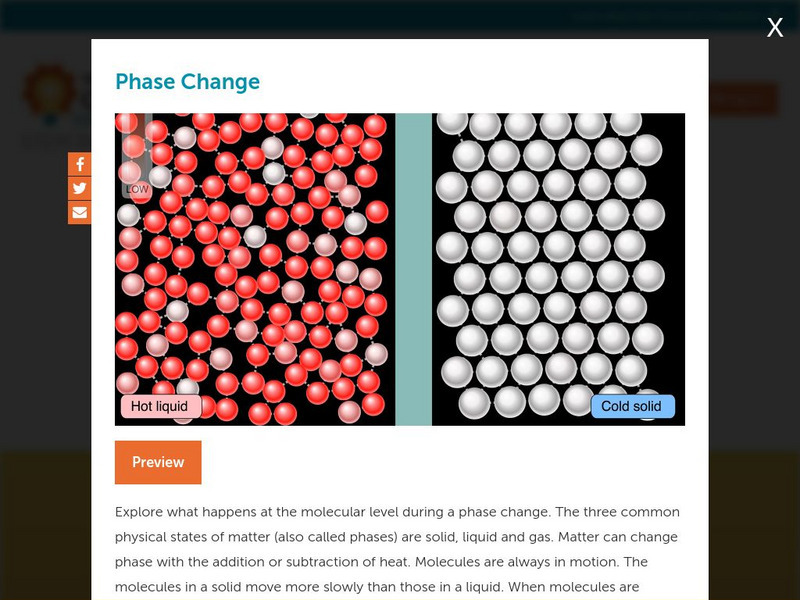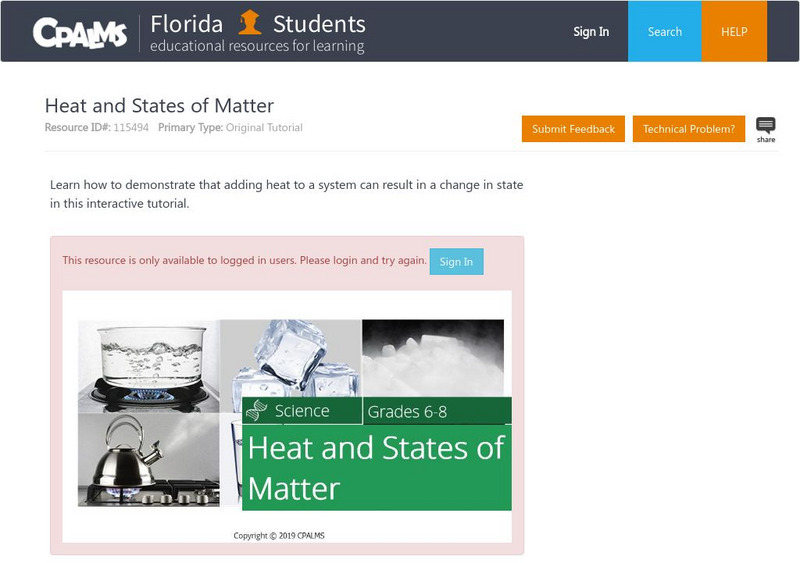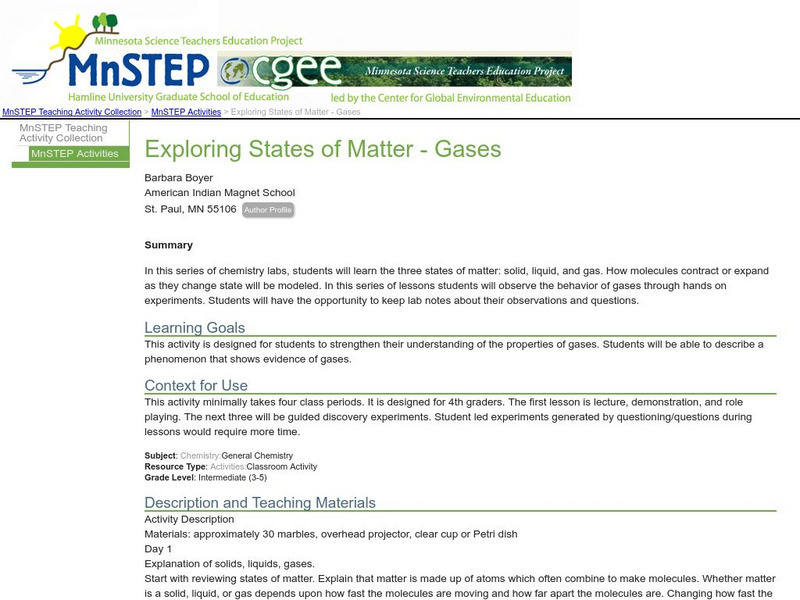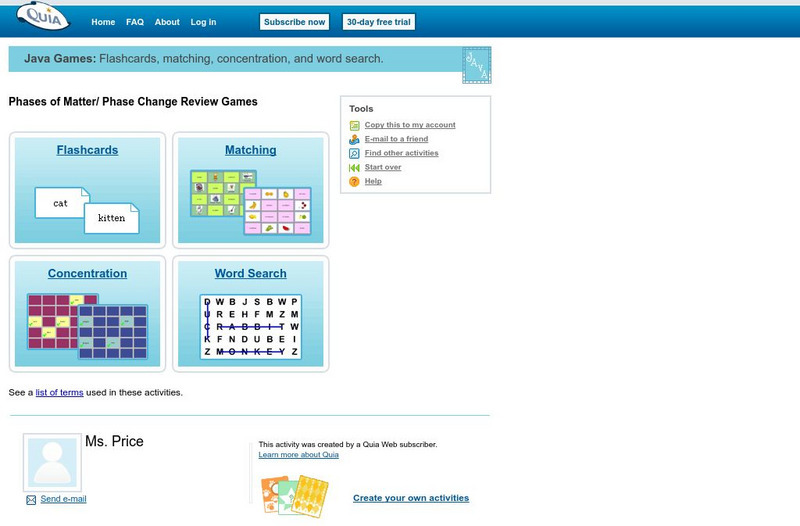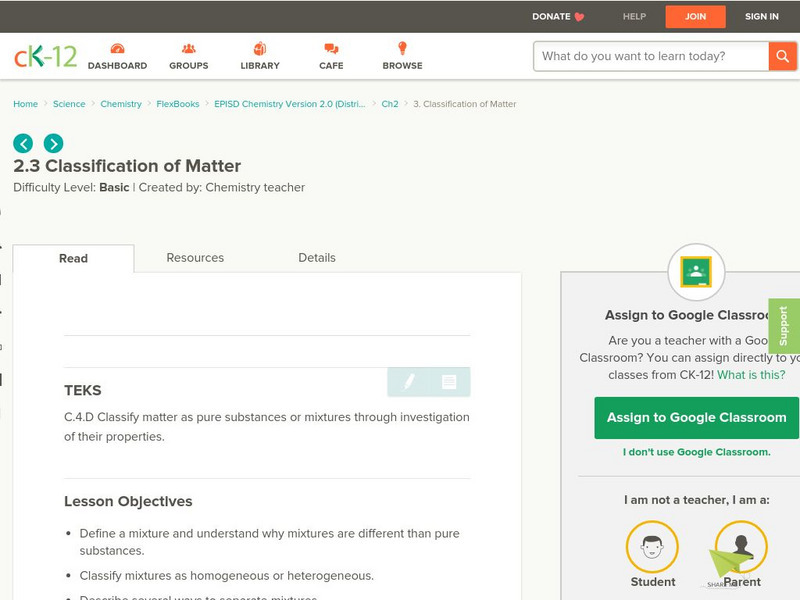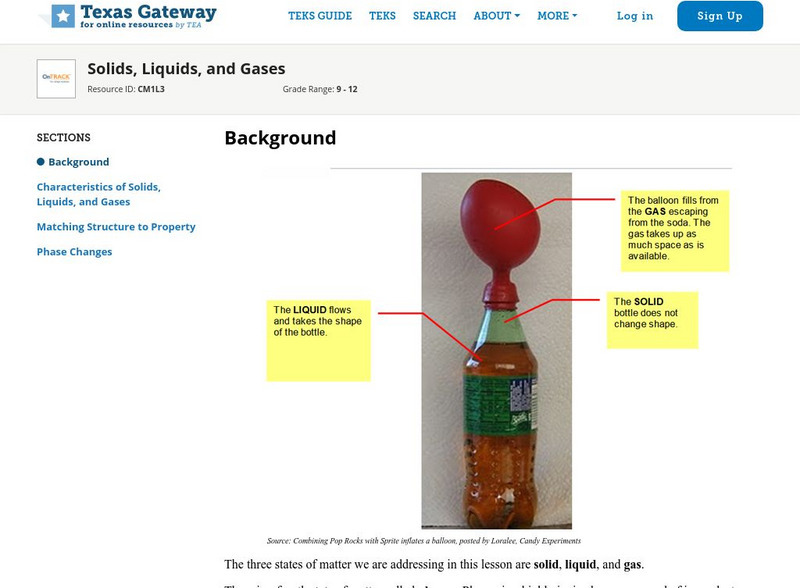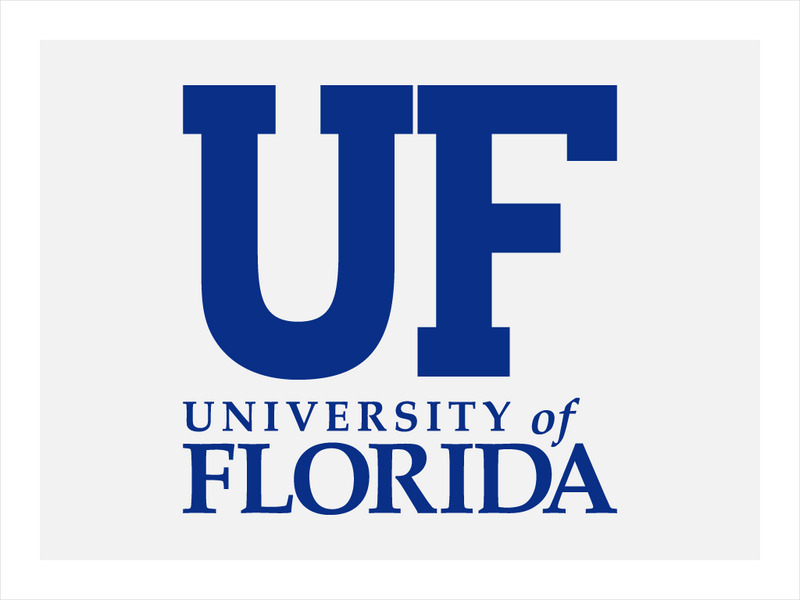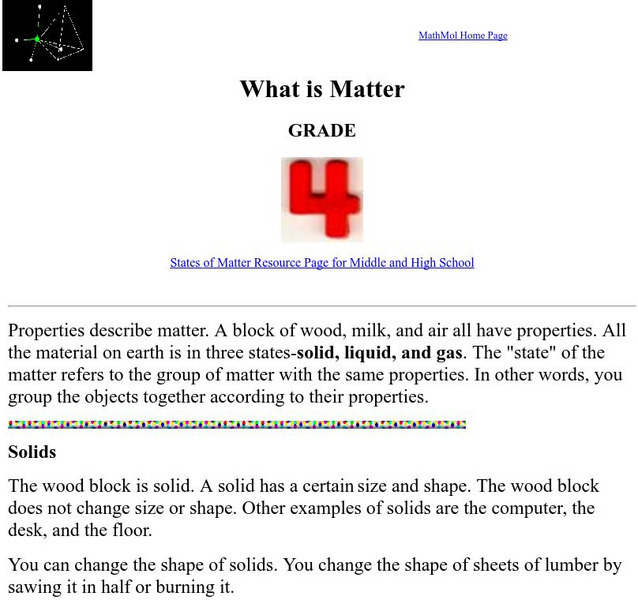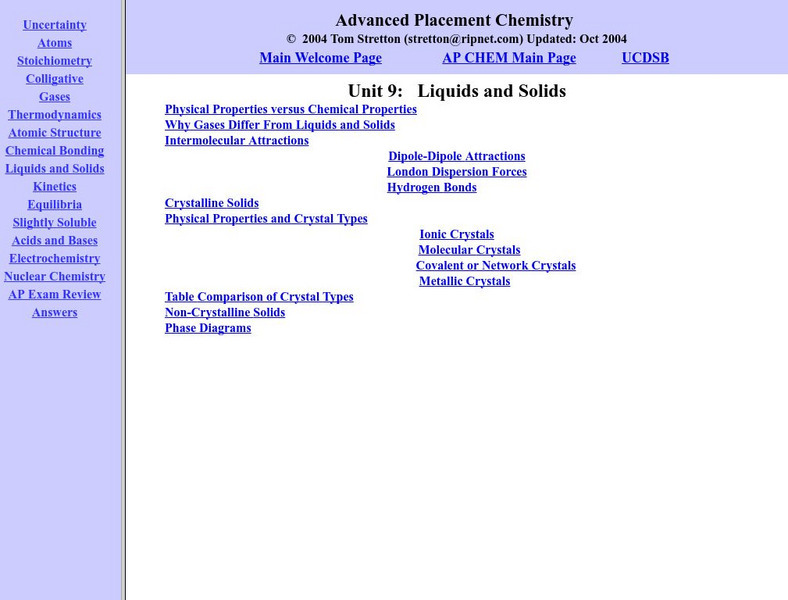Hi, what do you want to do?
Concord Consortium
Concord Consortium: Stem Resources: Phase Changes
This activity reviews of states of matter, then relates them to atomic movement as it is affected by attractions between atoms and the addition of energy. Latent heat and evaporative cooling are also topics covered. Multiple-choice and...
Concord Consortium
Concord Consortium: Stem Resources: States of Matter
Using simulations observe what solids, liquids, and gases look like at the atomic scale. After observing the different states of matter at their atomic level, students will be able to conclude about the forces and attractions that exist...
University of Colorado
University of Colorado: Ph Et Interactive Simulations: States of Matter: Basics
After watching this simulation, students will be able to describe characteristics of the three states of matter. They will watch as atoms and molecules change between solid, liquid and gas phases.
University of Colorado
University of Colorado: Ph Et Interactive Simulations: University of Colorado: States of Matter: Basics
An interactive simulation will heat, cool and compress atoms and molecules. Watch as they change between solid, liquid and gas phases. Recognize that different substances have different properties which will affect the temperatures for...
American Chemical Society
Middle School Chemistry: Chapter 2: Changes of State
Five chemistry lessons about phase changes between the states of mattter complete with handouts and animations.
CK-12 Foundation
Ck 12: Chemistry Simulation: Phase Change
[Free Registration/Login Required] Explore how heat and temperature relate to phase changes.
Science Education Resource Center at Carleton College
Serc: Freezing and Phase Change: How Do You Make Ice Cream?
Students will be expanding a study of phase changes after experiences with exploration of the three phases of matter. They apply what they have learned through freezing water and create a tasty ice cream treat.
CPALMS
Florida State University Cpalms: Florida Students: Heat and States of Matter
Learn how states of matter can change as heat is added to a system.
Science Education Resource Center at Carleton College
Serc: Exploring States of Matter Gases
In this series of chemistry labs, students learn about the three states of matter by observing how molecules contract or expand as they change state.
Florida State University
Florida State University: Intermolecular Forces: Changes of State
Discusses the changes of state that can occur for the three different types of matter (solids, liquids, and gases) and different types of heat energy that have been defined by scientists.
Quia
Quia: Phases of Matter
Four activities for reviewing vocabulary and definitions related to changes in states of matter.
Museum of Science
The Atom's Family: Phases of Matter
Help the Phantom choose a material and observe the changes at different temperatures in the molecule chamber. What happens to the elements or molecules as the temperature changes?
CK-12 Foundation
Ck 12: Classification of Matter
[Free Registration/Login may be required to access all resource tools.] In this online tutorial students will define a mixture and understand why mixtures are different than pure substances. They will classify mixtures as homogeneous or...
Texas Education Agency
Texas Gateway: Solids, Liquids, and Gases
Given descriptions, scenarios, or illustrations, students will distinguish between the compressibility, structure, shape, and volume of solids, liquids, and gases.
Texas Instruments
Texas Instruments: Who Says a Watched Pot Never Boils?
In this activity, students' will investigate what causes phase changes in matter.They use a temperature sensor to measure the temperature of a substance and identify visual clues to the phase changes.
University of Florida
Chem. 2041 Lecture Notes: The Forces Between Molecules
A discussion of the variety of forces which hold molecules together. The relative strengths of these forces for the various states of matter is discussed. The effect of such forces on the boiling points and other phase change...
New York University
New York University: What Is Matter?
At this resource discover the difference between solids, liquids, and gases. Practice what you just learned with included review questions.
Upper Canada District School Board
Tom Stretton's Advanced Placement Chemistry: Liquids and Solids
Take on this self-guided advanced level e-text, and learn about the chemical and physical structure of liquids and solids.
Purdue University
Purdue Univ: Gases, Liquids, and Solids
This site has a brief description of the differences in particles in a gas, liquid, and solid. Animated microscopic pictures demonstrate the molecular movement in each state. Information is then summarized in an easy-to-read chart.
Other
Science Alive: Melting Point Simulation
Percy Julian and Josef Pikl used the fact that melting point-the temperature at which a substance changes from a solid to a liquid-is a characteristic property of a substance to prove that the British chemist Robert Robinson could not...





